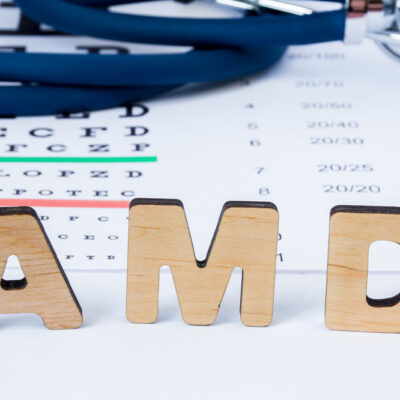Recognizing the uncommon symptoms of schizophrenia

Schizophrenia is a mental health condition affecting millions of people worldwide. While many are familiar with the classic symptoms of schizophrenia, such as delusions and hallucinations, there are several lesser-known signs that can indicate this condition. Understanding these uncommon symptoms is crucial for early diagnosis and effective management of schizophrenia. By understanding the full spectrum of schizophrenia symptoms, it is possible to promote better awareness, timely intervention, and improved outcomes for individuals with this condition.
Social isolation and withdrawal
Schizophrenia can cause individuals to gradually withdraw from social interactions and isolate themselves from others. They may prefer solitude and struggle with maintaining relationships. This social withdrawal is often a result of the individual’s internal experiences, such as disorganized thoughts or paranoia, which make it difficult to engage with others.
Apathy and lack of motivation
People with schizophrenia may experience a profound lack of motivation and enthusiasm for activities that were once meaningful to them. This lack of drive can extend to personal hygiene, work, and hobbies. They may struggle to initiate and complete tasks, leading to a decline in their overall functioning and productivity.
Anhedonia
Anhedonia is the inability to experience or derive pleasure from activities one usually enjoys. Individuals with schizophrenia may find that things they once found pleasurable, such as eating, socializing, or engaging in hobbies, no longer evoke positive emotions in them. This loss of interest in enjoyable experiences can contribute to feelings of emptiness.
Cognitive impairments
Schizophrenia can affect cognitive functioning, leading to difficulties in thinking, memory, and decision-making. Individuals may struggle with maintaining attention, organizing thoughts, and processing information. These cognitive impairments can significantly impact daily life and may be less noticeable than other symptoms of schizophrenia.
Emotional flatness
A common but often overlooked symptom of schizophrenia is a blunting or flattening of facial expressions in response to emotions. Individuals may have a limited range of emotional responses and appear indifferent or detached in their interactions. This emotional flatness can make it challenging for others to gauge their true feelings and may contribute to social difficulties.
Sensory distortions
In addition to auditory and visual hallucinations, individuals with schizophrenia may experience sensory distortions that are less recognized. These can include alterations in taste, smell, and touch perception. For example, they may report unusual tastes or smells without external stimuli.
Impaired motor skills
Schizophrenia can affect motor coordination and result in noticeable changes in physical movements. Individuals may exhibit abnormal or clumsy gestures, shuffling gait, or unusual postures. Such abnormalities are referred to as catatonia and can range from mild to severe, impacting their daily activities.
Changes in sleep patterns
Sleep disturbances are common in schizophrenia and can manifest as insomnia or excessive sleepiness. Individuals may struggle to fall asleep, experience interrupted sleep, or oversleep. These disruptions in sleep patterns can further exacerbate other symptoms and contribute to overall distress.
Disorganized speech and thought patterns
While disorganized speech is recognized as a classic symptom of schizophrenia, it is often overshadowed by more prominent symptoms. Individuals may exhibit incoherent or tangential speech, making it challenging to follow their conversations. Their thought processes may also be disorganized, with difficulty connecting ideas or thinking logically.
Lack of insight into the illness
One of the more challenging aspects of schizophrenia is the lack of insight into the illness itself. Many individuals with schizophrenia may not recognize or acknowledge their symptoms as signs of a mental health condition. This lack of insight can hinder treatment engagement, making early intervention crucial for improving outcomes.
Paranoia and suspiciousness
Paranoia is a common symptom of schizophrenia, characterized by unfounded beliefs that others are plotting against or spying on the individual. They may exhibit excessive suspicion and mistrust. This paranoia can significantly impact their professional and personal relationships and negatively affect their daily lives.
Social anxiety
Studies indicate that nearly 65% of individuals with schizophrenia experience anxiety-related symptoms. Such individuals may experience intense social anxiety and discomfort in social situations. They may feel self-conscious, fearful of judgment, and have difficulty initiating or sustaining conversations. It can further contribute to their social withdrawal and isolation.
Lack of self-care
Cognitive and behavioral issues triggered by schizophrenia can interfere with individuals’ ability to care for themselves. They may neglect personal hygiene and fail to maintain healthy eating. Furthermore, other individuals may often misinterpret this warning sign as laziness, leading to troubles in social relationships. Individuals may also struggle with maintaining basic personal hygiene, such as regular bathing, brushing teeth, and grooming. It can also impact an individual’s ability to plan and prepare balanced meals, leading to inadequate nutrition. Relying on processed foods or skipping meals can worsen their health. This lack of self-care can further contribute to physical and emotional challenges. Preventive strategies may involve creating a structured routine, providing assistance and reminders for self-care activities, encouraging healthy eating habits, promoting physical activity, and addressing management challenges.
Emotional instability
While emotional flatness is commonly associated with schizophrenia, some individuals may experience intense and unpredictable mood swings. They may fluctuate between extreme sadness, irritability, and euphoria.
Impaired social cognition
Social cognition refers to the ability to understand and interpret social cues, emotions, and intentions of others. Individuals with schizophrenia may struggle with social cognition, finding it hard to perceive and interpret social interactions accurately. This difficulty can lead to misunderstandings and strained relationships.
Executive functioning deficits
Executive functions encompass cognitive processes such as planning, problem-solving, decision-making, and impulse control. Schizophrenia can impair executive functioning, making it difficult for individuals to manage tasks, set goals, and make appropriate choices. These deficits can affect their work, education, and personal relationships.
While some symptoms of schizophrenia are well-known, it is important to recognize the uncommon warning signs, such as cognitive difficulties, sensory disturbances, and disorganized behavior, that may indicate the presence of the condition. The exact causes of schizophrenia are not fully understood, but a combination of genetic, environmental, and neurochemical factors contribute to its development. Early diagnosis and treatment are crucial, as it helps manage symptoms, improve quality of life, and prevent complications. Individuals experiencing the abovementioned warning signs should contact a mental health professional for a comprehensive assessment and appropriate treatment plan.








